
Spring is here- the weather is clear and the flowers are blooming! But with each blooming flower, the pollen count rises as more and more allergens begin to pollute the air. Many pet owners forget that pets, too, can be affected by seasonal allergies; however, unlike humans, pets are dependent on their owners to provide relief from their symptoms. Cats and dogs can both suffer from a variety of indications, such as skin irritation, red eyes, ear infections, and inflammation of the paws. These symptoms can be manifested in behaviors such as licking or chewing their paws or excessive scratching. Although pets can get allergies from food or medication, this article will focus on seasonal pet allergies and how you can provide relief from irritation caused by allergens in your pet's environment.
Signs and Symptoms of Allergies
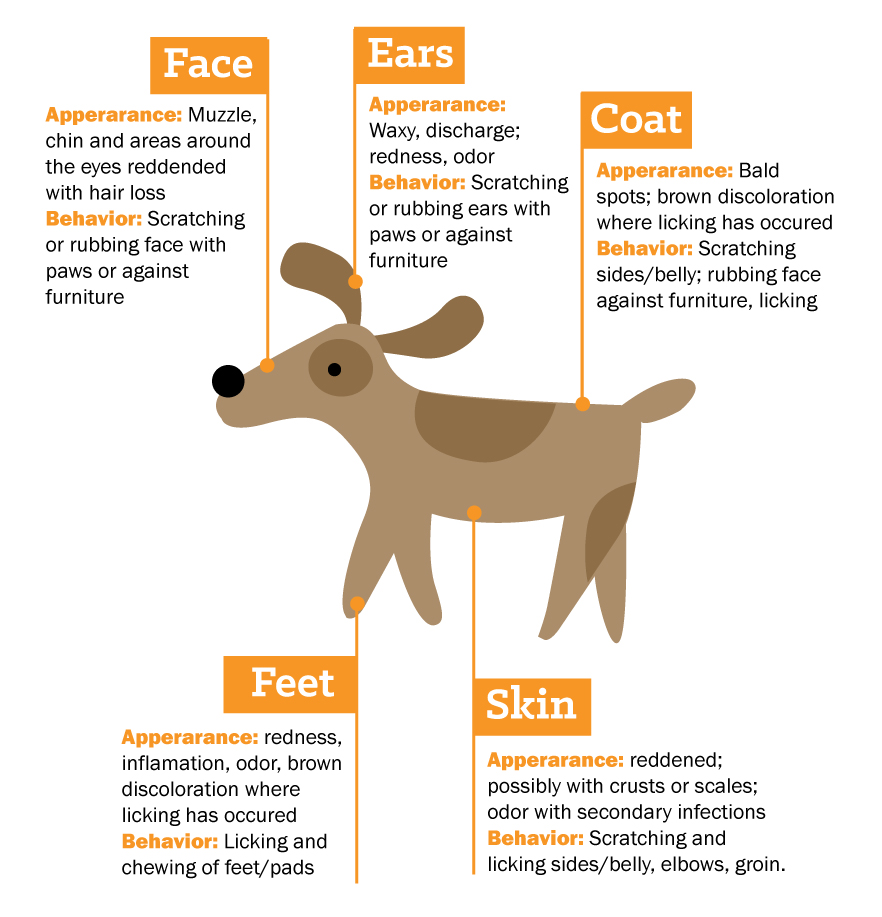
Common Causes for Allergies
Common causes for allergies are the same in both humans and pets.
- Fleas
- Pet Skin Flakes
- Grass and Tree Pollen
- Food
- Dust Mites
- Fungal and Mold Spores

Flea Allergies
One common cause of allergies in pets is the presence of fleas. Some studies estimate that 40% of all dogs get allergies from fleas. As with other allergies, the threat of fleas becomes amplified in the spring time when flea eggs typically start to hatch. Once hatched, fleas begin searching for a host. Although many owners aim to protect their dogs from parasitic infestations, it's possible for a flea to elicit an allergic reaction in your pet with the saliva from a single bite.
Symptoms of flea allergies infect the skin of an infected pet. Afflicted skin becomes itchy and irritated, eliciting constant scratching of the infected area. This intense itching sensation can cause pets to scratch and bite at the base of their tail or the ends of their paws. If this scratching is not controlled, pets can experience hair loss and bleeding, so it is important to treat pets that exhibit these symptoms quickly.
Administering the proper flea medications to your pet is instrumental when treating allergies caused by fleas. The remedies below will help keep you protect your pet from fleas throughout the spring season.
Flea Allergy Remedies
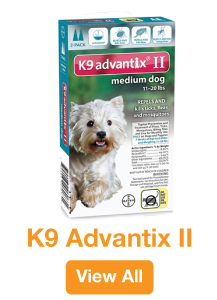
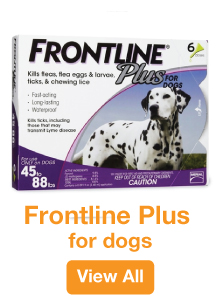
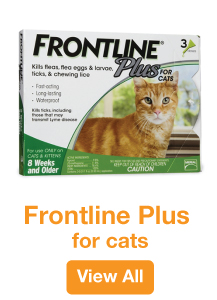


Atopic Allergies
Apart from flea allergies, the most common pet allergies are atopic. Roughly 15% of all dogs suffer from atopic allergies, which are caused by allergens that can transferred through inhalation, the pads of their feet, or ingestion. Ragweed, animal dander, pollen, mold, house dust, house dust mites, feathers, grasses, shrubs, and trees can each cause an atopic allergic reaction in dogs. Preventing exposure to these allergens is nigh but impossible, so correctly identifying the symptoms of these allergic reactions is crucial to treating them.
Skin irritation and inflammation are often caused by atopic allergens. This symptom, known as allergic dermatitis or atopic dermatitis, is characterized by irritated skin, itchiness, skin chewing, constant ear infections, and bald spots.
Treatment of Allergic Dermatitis
Bath Time
Frequently bathing your pet works to relieve itching and to wash away the allergens causing the reaction. It's important to ensure that your shampoo is grain-free and oatmeal-free to completely resolve these skin problems.
Pet Paws
Wiping your pet's paws clean can also reduce allergens from entering the home. This practice also prevents your pet from ingesting any allergens while licking or biting their paws. Use any of the recommended products below.
Nutritional Supplements
Promoting overall health can also help combat allergies. Quercetin has anti-inflammatory properties and acts as an abundant source of antioxidants. Supplements like Oli-Vet Extract use quercetin in combination with bromelain and papain to create natural inflammation control and pain relief. Omega-3 fatty acids decrease inflammation throughout your pet's body and strengthens their immune system.
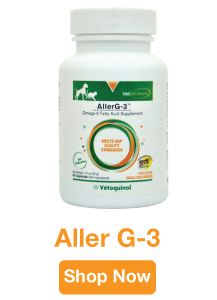

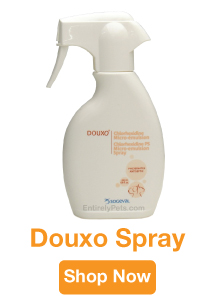
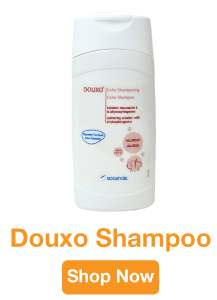
Routine Grooming
Keep your pet well-groomed to ensure that allergens are kept off of their body. This will not only prevent pets from ingesting or inhaling allergens, but it will also keep allergens out of your home.
